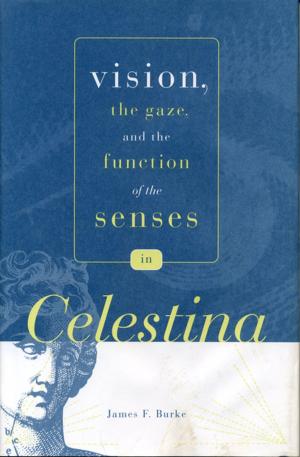Intentions
Negotiated, Contested, and Ignored
Nonfiction, Reference & Language, Language Arts, Public Speaking, Rhetoric, Fiction & Literature, Literary Theory & Criticism, Theory, Religion & Spirituality, Philosophy| Author: | Arabella Lyon | ISBN: | 9780271075839 |
| Publisher: | Penn State University Press | Publication: | December 15, 1998 |
| Imprint: | Penn State University Press | Language: | English |
| Author: | Arabella Lyon |
| ISBN: | 9780271075839 |
| Publisher: | Penn State University Press |
| Publication: | December 15, 1998 |
| Imprint: | Penn State University Press |
| Language: | English |
The relationship between an author's and an audience's intentions is complex but need not preclude mutual engagement. This philosophical investigation challenges existing literary and rhetorical perspectives on intention and offers a new framework for understanding the negotiation of meaning. It describes how an audience's intentions affect their interpretations, shows how audiences negotiate meaning when faced with a writer's undecipherable intentions, and defines the scope of understanding within rhetorical situations.
Introducing a concept of intention into literary analysis that supersedes existing rhetorical theory, Arabella Lyon shows how the rhetorics of I. A. Richards, Wayne Booth, and Stanley Fish, as well as the hermeneutics of Hans-Georg Gadamer, fail to account for the complex interactions of author and audience. Using Kenneth Burke's concepts of form, motive, and purpose, she builds a more complex notion of intention than those usually found in literary studies, then employs her theory to describe how philosophers read Wittgenstein's narratives, metaphors, and reversals in argument.
Lyon argues that our differences in intention prevent consistency in interpretations but do not stop our discussions, deliberations, and actions. She seeks to acknowledge difference and the communicative problems it creates while demonstrating that difference is normal and does not end our engagement with each other.
Intentions combines recent work in philosophy, literary criticism, hermeneutics, and rhetoric in a highly imaginative way to construct a theory of intention for a postmodern rhetoric. It recovers and renovates central concepts in rhetorical theory—not only intention but also deliberation, politics, and judgment.
The relationship between an author's and an audience's intentions is complex but need not preclude mutual engagement. This philosophical investigation challenges existing literary and rhetorical perspectives on intention and offers a new framework for understanding the negotiation of meaning. It describes how an audience's intentions affect their interpretations, shows how audiences negotiate meaning when faced with a writer's undecipherable intentions, and defines the scope of understanding within rhetorical situations.
Introducing a concept of intention into literary analysis that supersedes existing rhetorical theory, Arabella Lyon shows how the rhetorics of I. A. Richards, Wayne Booth, and Stanley Fish, as well as the hermeneutics of Hans-Georg Gadamer, fail to account for the complex interactions of author and audience. Using Kenneth Burke's concepts of form, motive, and purpose, she builds a more complex notion of intention than those usually found in literary studies, then employs her theory to describe how philosophers read Wittgenstein's narratives, metaphors, and reversals in argument.
Lyon argues that our differences in intention prevent consistency in interpretations but do not stop our discussions, deliberations, and actions. She seeks to acknowledge difference and the communicative problems it creates while demonstrating that difference is normal and does not end our engagement with each other.
Intentions combines recent work in philosophy, literary criticism, hermeneutics, and rhetoric in a highly imaginative way to construct a theory of intention for a postmodern rhetoric. It recovers and renovates central concepts in rhetorical theory—not only intention but also deliberation, politics, and judgment.















